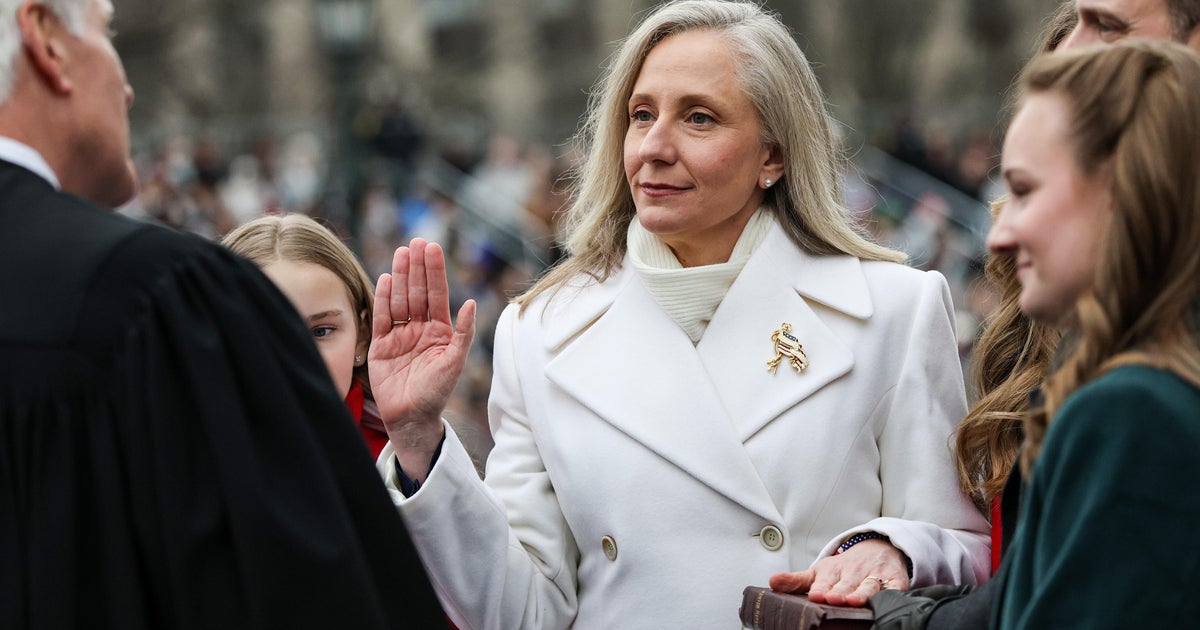West Virginia court temporarily blocks ban keeping trans athletes off school sports teams
A child in West Virginia will be allowed to try out for her middle school's track and field team next week after a federal appeals court ruling temporarily paused the state ban preventing transgender students from joining girls' sports teams.
The 4th U.S. Court of Appeals ruled Wednesday, by a 2-1 vote, to reinstate a preliminary injunction that for a time froze the ban which was originally signed into law by West Virginia Governor Jim Justice in 2021. A federal judge dissolved the injunction last month, saying the ban — which applies to middle school, high school and college sports teams statewide — was constitutional and could remain in place. That decision also said the ban did not violate Title IX, the landmark 1972 legislation that ruled against sex-based discrimination in any school or education program that receives federal funding.
This week's ruling will prevent school districts from enforcing the law while an appeal is heard. After the ban was first passed nearly two years ago, the American Civil Liberties Union and its West Virginia chapter filed a lawsuit on behalf of Becky Pepper-Jackson, then an 11-year-old transgender student-athlete who hoped to compete on the girls' cross country team at her middle school in Harrison County.
"We are thrilled that Becky will get to continue to participate in school sports with her classmates, at least for now," said Aubrey Sparks, the managing attorney at the West Virginia chapter of the ACLU, in a statement following the appeals court's decision. "Becky has said all along she just wants to do the thing she loves with her friends and that she's taking this stand for other young people like her."
The ACLU filed the lawsuit against the state board of education in West Virginia as well as the board of education in Harrison County, plus both superintendents. In a motion that pushed, ultimately successfully, for the stay on January's decision to do away with the initial pause, representatives for Pepper-Jackson argued that "[a]bsent a stay, B.P.J. cannot participate on girls' teams at her school, as she has—without incident—for the year-and-a-half under the injunction."
"This ruling tells Becky that she, like all transgender people, deserves respect and the opportunity to play sports, have fun with her friends, and just be a kid," said Sruti Swaminathan, the staff attorney for youth at the civil rights organization Lambda Legal, in a separate statement responding to Wednesday's ruling.
Attorneys additionally questioned in the lawsuit "whether a statute may categorically exclude B.P.J. from all sex-separated sports because of the incongruence between her gender identity and sex assigned at birth, relegating her to 'watch her teams compete from the sidelines,'" and argued that doing so violates Pepper-Jackson's rights to equal protection under the law.
The suit noted that "isolating B.P.J. from her peers by preventing her from participating in a manner consistent with her gender identity discriminates against her in violation of the Equal Protection Clause and Title IX."
"Indeed, as far as the record shows, B.P.J. is still the only girl who is transgender seeking to play school sports in West Virginia," it said. "Thus, the only actual inequity at issue here is depriving B.P.J. the once-in-a-lifetime opportunity to play middle school sports as the girl she is."
More than a dozen U.S. states have passed complete bans or restrictions preventing transgender girls from competing on girls' sports teams at school. At the same time, a number of states have passed, or are in the process of passing, bans to prevent transgender kids from receiving gender-affirming health care. A bill prohibiting physicians from giving gender-affirming surgeries to minors recently advanced in West Virginia.





